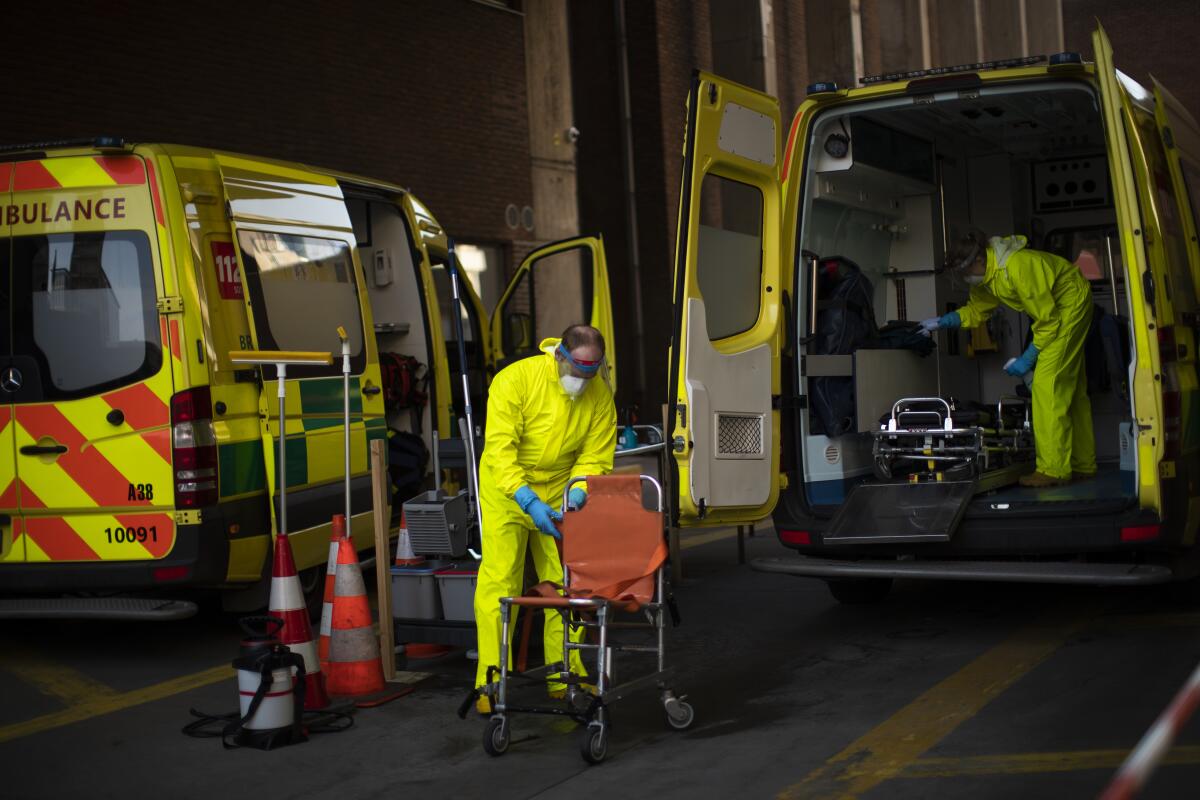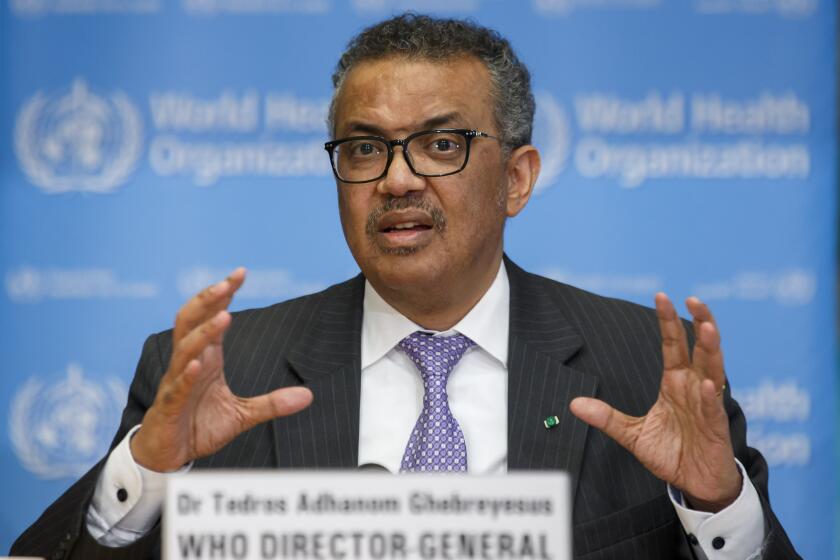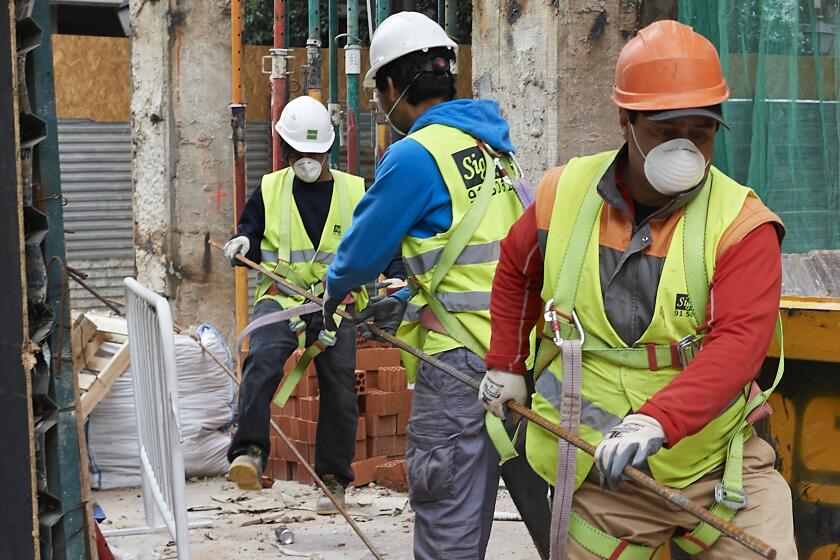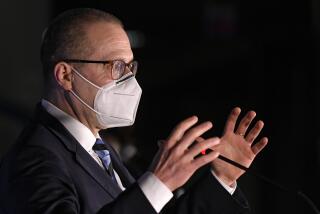EU unveils coronavirus exit plan, hoping to avoid more chaos

- Share via
BRUSSELS — The European Union moved Wednesday to head off a chaotic and potentially disastrous easing of coronavirus restrictions among its 27 member nations, warning them to move cautiously and to base their actions on scientific advice.
With Austria, the Czech Republic and Denmark already lifting some lockdown measures, and hard-hit Italy and Spain also easing some restrictions, the commission published its road map for members of the world’s biggest trade bloc to coordinate an exit from their lockdowns, which they should expect to take several months and involve large-scale testing.
Brussels is deeply concerned about the damage that could be done if each EU nation charts its own course, given the panic that reigned after the pandemic first spread in Italy, with unannounced border closures that sparked massive traffic jams and export bans that deprived countries of medical equipment.
Western European nations move to ease some virus restrictions. The moves could be a beacon of hope for the U.S. or a cautionary tale.
About 80,000 people have now died in Europe from the disease — about two-thirds of the global toll — according to the European Center for Disease Prevention and Control. The European Commission, the EU’s executive arm, said those scientists should be relied upon to guide national exit strategies in the weeks and months to come.
“This is not — it is not — a signal that confinement, containment measures can be lifted as of now,” commission president Ursula von der Leyen told reporters, highlighting the need for clear communication across the bloc as countries emerge from quarantine.
Warning that lifting restrictions will “unavoidably lead to a corresponding increase in new cases,” the commission said that this should only start when the spread of the disease has dropped significantly and for some time, and when hospitals can cope with more patients.
While the commission, which proposes EU laws and ensures that they are enforced, does not spell out exactly how EU countries should make the transition, it underlined that “the exit should be gradual.”
“A lack of coordination in lifting restrictive measures risks having negative effects for all member states and creating political friction,” the commission’s road map said.
Business operations should be phased in by sectors, based on such considerations as how much can be done over the internet, the economic importance of the industry or the kinds of shift work that could be introduced. Social distancing should be maintained and there should be no general return to work, the commission said.
Shops could gradually reopen, with possible limits on the number of people who could enter, and schools could start again, although the commission recommends smaller classes to allow students to work at a safer distance from each other. Lunch breaks could be set at different times and internet learning should be favored where possible.
Coronavirus-devastated Spain takes first step toward opening its economy: factory and construction work
Elderly people should be protected for longer, while restaurants, bars and cinemas could resume business with restricted opening hours and limits on the number of people who enter. Measures blocking mass gatherings such as festivals and concerts should be among the last to be lifted.
The commission also recommends that virus testing be massively increased and performed in the same way across the bloc. It says data collection, including through apps on mobile phones, “can help interrupt infection chains and reduce the risk of further virus transmission,” and should be done on a voluntary basis.
The EU is injecting funds into research to fast-track the hunt for a vaccine, and is working with the European Medicines Agency to make it easier to conduct clinical trials and slash any red tape that might stop it going on sale.
“This is our collective best shot at beating the virus,” Von der Leyen said, and she announced an online pledging conference to help raise funds for the effort on May 4.
More to Read
Sign up for Essential California
The most important California stories and recommendations in your inbox every morning.
You may occasionally receive promotional content from the Los Angeles Times.












